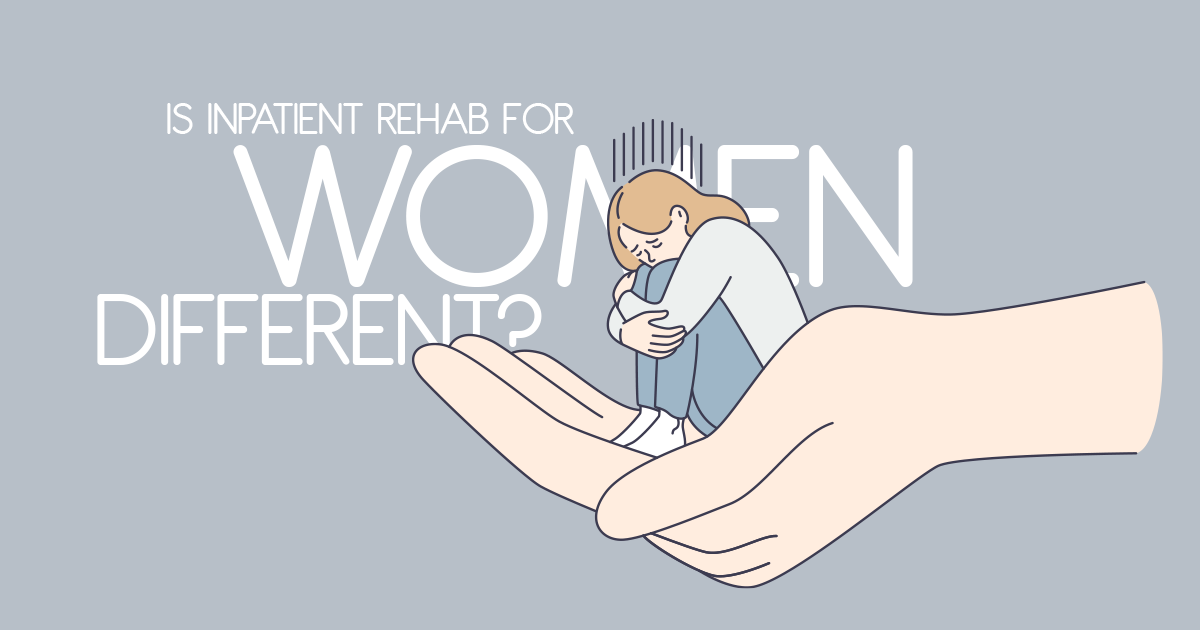When you’re choosing a rehab program for drug addiction or alcohol addiction, you have a lot of choices. Programs are available on an inpatient or outpatient basis, for example. There are holistic treatment programs. Some programs may incorporate alternative therapies. Others are primarily based on the 12-step philosophy.
There are also gender-specific treatment options. For example, you could go to inpatient rehab for women or outpatient women-only rehab.
There are a lot of advantages to a single-gender addiction treatment program for the recovery process. However, there are not necessarily huge differences in the treatment philosophy in rehab for only women versus other programs.
What Holds Women Back from Getting Treatment?
Women often deal with addiction differently than men, and as a result, they’re more reluctant and less likely to seek treatment. Some of the reasons women are less likely to get treatment include:
- Women may feel more shame or stigma about their use of drugs or alcohol. They may try to hide it altogether or worry about what people will think if they go to rehab.
- In many cases, women have responsibilities to their families and children. If someone is the primary caretaker for children, as an example, it’s going to be harder for them to leave for an inpatient treatment program.
- Some women have specific needs, for example, they need treatment for addiction during pregnancy. A pregnant woman may not know where to turn for specialized care in these situations when addicted to illicit drugs. However, getting appropriate treatment and prenatal care can reduce the risk of premature birth, low birth weight, birth defects, and fetal alcohol spectrum disorders.
- Compared to men, a higher percentage of women with substance use disorders are abuse victims. This can include sexual assault and sexual abuse, physical abuse or verbal abuse, or domestic violence. Anywhere from 55-99% of women in addiction treatment have a history of trauma. Women may be afraid to talk about this, so they’re apprehensive about going to treatment. Having a history of trauma can also worsen a woman’s shame when struggling with addiction.
- A woman is more likely to have economic barriers preventing her from getting treatment for alcohol or drug abuse. Women may have less income, lower wages, or less financial support to go to treatment. They may also already be living in poverty.
What is Gender-Specific Treatment?
Gender-specific treatment treats women and men separately. A gender-specific treatment program like an inpatient rehab for women can provide appropriate care for the cultural and biological differences that men and women experience concerning substance use.
For example, there are differences in substance types, how the brain responds, and the dependence rates.
- Women tend to have different underlying reasons for using substances initially and distinctive situations that lead to relapse.
- All these issues are managed appropriately in a comfortable, supportive environment in a gender-specific program.
- Substance abuse is often linked to abusive relationships or traumatic experiences for women. Women will turn to drugs or alcohol to self-medicate and escape painful experiences or memories.
- On the other hand, men are more likely to start using substances because of the benefits they perceive they’ll gain from doing so, like more productivity or sociability.
- For women, substance use tends to escalate to addiction and dependence more rapidly than for men.
- According to the Mental Health Services Administration, women also present with more co-occurring disorders such as anxiety and depression.
Some of the benefits of women-only rehab and treatment centers include:
- Treatment for women is specialized to address the emotional, physical, and relationship-based issues that often give rise to addiction.
- In an outpatient or inpatient rehab for women, there may be more opportunities for bonding and a sense of trust among patients.
- There are fewer opportunities for distractions or for romantic relationships to begin.
- Being part of gender-specific therapy groups can encourage participants to share their experiences.
- Women who’ve experienced trauma may not feel comfortable participating in programs involving male patients.
- There are opportunities to talk about similarities and shared experiences outside of addiction, such as motherhood.
- At a center specific to the needs of women, there can be more focus on support after you complete a program. For example, some women are fearful of losing custody of their children. A women’s-only treatment program will consider these worries and connect clients with services that will help them in other areas of their lives.
- Gender-specific programs for women can screen and provide treatment for medical problems specific to women, whether they relate to substance use or not.
- An outpatient or inpatient rehab for women might focus on spiritual and emotional well-being and take a whole-person approach to treatment. This could include things like body image. Eating disorders often co-occur with substance use disorders in women. Family therapy may also be offered at an outpatient drug rehabilitation center.

Trauma-Informed Substance Abuse Treatment
Something that can be important for women who receive treatment for an addiction to drugs or alcohol is the availability of trauma-informed care. Trauma-informed care helps people who have gone through trauma.
- Trauma-informed care providers understand the deep implications of these experiences.
- People with a co-occurring diagnosis of post-traumatic stress disorder (PTSD) are five times more likely to get treatment for a substance use disorder than the general population.
- Trauma-informed care works to treat the experience itself, rather than only the symptoms.
- Many evidence-based approaches and types of behavioral therapy work well for trauma-informed care.
- A trauma-informed care program understands the cognitive and neurological effects of how the brain processes trauma.
International women’s day is a great day to acknowledge the value and beauty of women. But also because of the state of the world and women’s general place in it, it is also a reminder of the problems and what could be done to improve things. Women suffer from high levels of PTSD, complex PTSD and trauma worldwide due to abuse and a lower social status. As a result of this there are increasing levels of drug use and alcohol abuse by women worldwide. There is a significant association between trauma and substance abuse and an increasing rise in substance abuse by women worldwide. Substance abuse is often used as a way to manage and self medicate emotional pain and stress.
What are the Benefits of an Outpatient Program?
Both inpatient and outpatient programs can have enormous benefits for women of all backgrounds struggling with addiction.
In an inpatient rehab for women, you live onsite for a period of time. You have support around the clock during your stay. Treatment is intensive, and you participate in therapy and programs throughout the day.
The challenge for some women with inpatient programs is that they may have family obligations, such as children to care for, that prevent them from going to this type of rehab.
- Other options, including outpatient programs, are a valuable part of the treatment process for addiction and mental health issues.
- Outpatient drug rehabs afford the chance to get intensive, individualized treatment for addiction and mental health disorders, but you can also continue to keep up with other responsibilities.
- These substance abuse treatment programs can be an excellent option for women who feel like they can’t be away from their daily lives for an extended period of time.
- Once in treatment, the challenge is usually staying in treatment long enough to not only break free of drugs, but to get your life back on track. With that in mind, let’s look at five important benefits of a drug rehab program for you or a loved one. Rehab can help you.
- People who are addicted to drugs need to be in a drug-free environment with people who will hold them accountable for their goal of getting off drugs. Drug rehab may begin with detoxification, which helps the addict rid his or her body of the drugs and treat any withdrawal symptoms. Not everyone needs to go through detox, but detox alone is not enough treatment to effectively break the addictive cycle long-term. Once detox is completed, the real work of addiction treatment begins
We encourage you to reach out to the Silver Lining Recovery team by calling 833-844-4769 if you’d like to learn more about outpatient addiction treatment programs in Huntington Beach, CA, and how they can help you begin your recovery journey.

